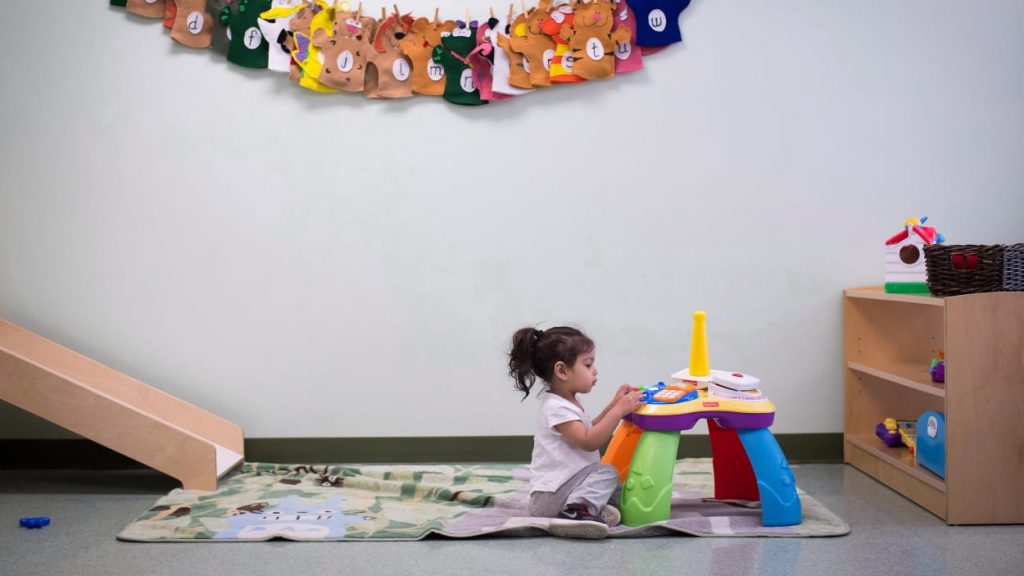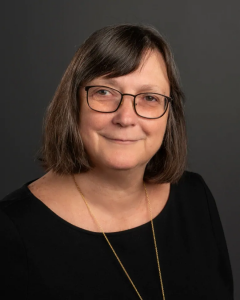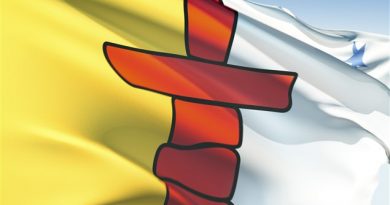Candidates push for better safety net in Canada’s Northwest Territories

An election campaign offers something of a public policy brainstorming session, with candidates putting up their best ideas for improving life in the Northwest Territories.
In the Northwest Territories, proposals run the gamut from building new art galleries, to offering grants for students in health-care fields, to setting up private cannabis stores in every community.
But a handful of candidates are touting two big ideas — ones that would greatly expand the territory’s social safety net: a guaranteed basic income and universal childcare.
CBC News looked into these platform planks, and how they might work in the N.W.T.
Guaranteed basic income
A guaranteed basic income can mean different things, and at least three N.W.T. candidates have proposed some version of it.
Broadly speaking, a guaranteed basic income would allow everyone in the territory to pay for their basic needs and a little bit more, no matter their job status.

“There are a number of people everywhere in this country who are working, and working a lot of hours, but not earning enough money to support themselves in a reasonable way,” said Evelyn Forget, a professor of economics at the University of Manitoba.
“A basic income that could supplement low-waged work would be very beneficial thing.”
Manitoba tested guaranteed income on a small scale in the 1970s, and a later study of the project, led by Forget, found it improved the general health of the trial community.
The idea resurfaced during the province’s recent election — the NDP, Greens and Liberals each pitched some kind of guaranteed basic income.
Many Canadian social programs are “designed to keep people poor,” said Forget.
“A lot of the bureaucracy that’s associated with income assistance — it actually discourages people, it actually penalizes people for trying to make their lives better.”
She said a guaranteed basic income wouldn’t do that.
In Canada, said Forget, when people talk about a basic income, it doesn’t mean a paycheque for everyone. They’re typically referring to program that would replace income assistance and disability payments, and supplement the pay of low-wage workers.
“They’re usually thinking about a program that is dependent on the wages people make, so it works sort of like a refundable tax credit,” said Forget.
“If people have no income from other sources, they receive the full benefit, and as their wage income increases, the benefit declines, but it declines less than proportionately, so it works a little bit like the Canada Child Benefit.”
While a large province like Ontario could conceivably provide a basic income that replaces other forms of social assistance, said Forget, in a small jurisdiction like the Northwest Territories, a basic income would have to be paid in addition to existing programs.
She said in N.W.T., a guaranteed basic income could look like tax reform: converting certain non-refundable tax credits into refundable ones.
Forget estimated that, with an overhaul of the tax system and the support of the federal government, the territory could probably offer a basic income of $6,000 or $7,000 a year to each person in need.
“It would certainly be possible to do a better job than we’re doing now,” Forget said. “That’s almost universally the case.”
Universal daycare
Like guaranteed basic income, there isn’t just one way to do universal daycare. Several N.W.T. candidates say they would push for childcare that is affordable and accessible.
The cost of daycare in the territory can be as high as $80 a day for an infant and more than $65 per day for a preschooler.
While Aboriginal Head Start programs are free, they don’t start until age three.
Currently, there are no licensed daycare centres for children younger than three in 11 N.W.T. communities.
Finding childcare is a problem for families all over Canada, and it has the effect of keeping women — typically the primary caregivers — out of the workforce.
But Pierre Fortin, an economics professor at the University of Quebec at Montreal who has studied childcare in Quebec, says it doesn’t have to be this way.
“The labour force participation rate in Quebec is by far the highest in Canada, and this development has occurred in the past 20 years, over which the universal childcare policy has been implemented,” he said.
Right now Quebec offers subsidized daycare at a cost of $8.25 a day to families with an income below $78,320. The price climbs incrementally to $13.20 a day for families with incomes up to $166,320.
Fortin said the province’s daycare program is extremely popular.
He also said it “more than pays for itself.” Affordable childcare means more women are working, which in turn means more women are paying sales taxes on the extra stuff they’re buying, and more income taxes on the wages they’re earning.
“You don’t have to increase taxes on taxpayers to have this program work and be financed,” said Fortin.
The N.W.T. government commissioned a feasibility study of universal childcare in 2015.
The authors determined that childcare for all children up to four would cost about $20 million a year. They also concluded that such a program would grow the economy, increase tax revenues (because more women would be working), and bring down social assistance costs.
The reason most provinces and territories have yet to adopt universal daycare, said Fortin, is because they’re waiting for Ottawa to step up. The federal government, after all, would also gain from income tax revenue generated by more working moms.
“Quebec has done it alone, but it certainly would be good for the entire population of Canada if it was a shared federal-provincial program,” he said.
A 2019 study of low-cost daycare in the Nunavik region of Quebec showed there was greater participation by women in the workforce there, than in other northern regions.
“This is a policy that could work well in Northwest Territories, as well as in Northern Quebec,” said Fortin.
Related stories from around the North:
Canada: Arctic Canada: High school students want their issues known for Northwest Territories election, CBC News
Finland: Finland’s Centre Party elects new leader, Yle News
Russia: Career diplomat to represent Murmansk region in Russian senate, The Independent Barents Observer
Sweden: Ann Linde named Sweden’s foreign minister in cabinet shuffle, Radio Sweden
United States: Alaska governor accepts reduced dividends, upholds most vetoes, Alaska Public Media



